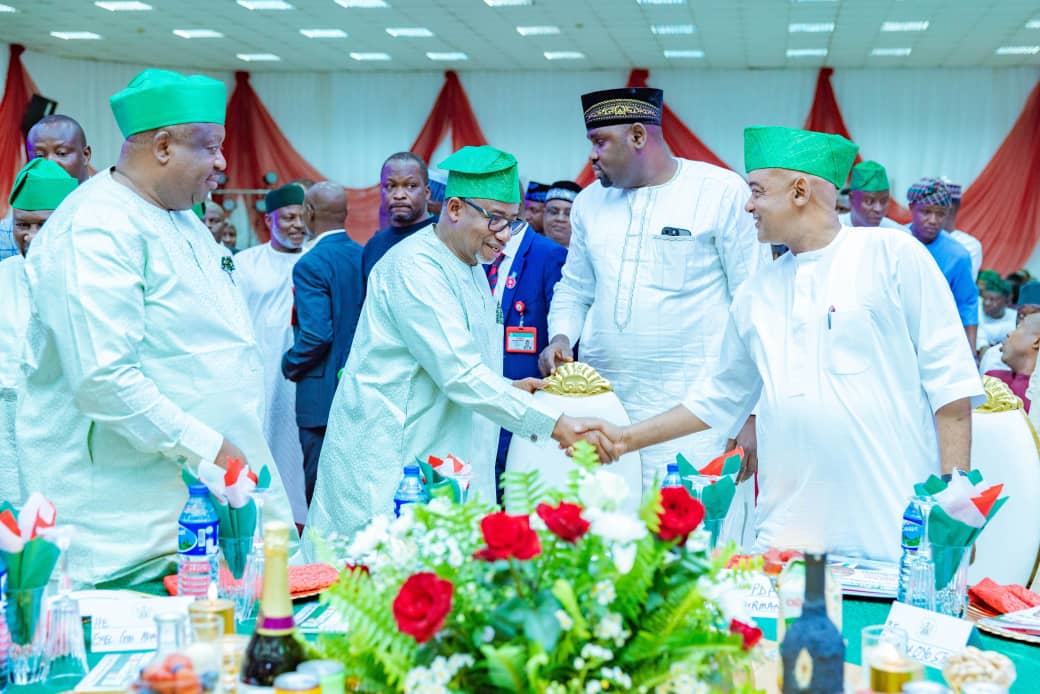Introduction
Two weeks ago, we suspended this treatise to look at a very tropical issue burning the nation. However, in our last outing, we examined the legal and legislative dimension of the issue under discussion, its constitutional and legislative framework, the role of the judiciary in protecting educational rights, educational autonomy and the rights of educational institutions to administer their affairs. We then looked at the implications and the path forward, its potential impact on Nigeria’s educational system
Bottlenecks in academic progression, impact on student motivation and mental health, potential increase in drop-out rates and undermining educational inequality, after which we examined the way forward, with a call for holistic educational reform including repealing the minimum age policy and its implications, implementing a merit-based admission system and special provisions for gifted students.
Today, we shall continue with the same followed by suggestions for strengthening legislative and judicial oversight, investing in educational infrastructure and reforming secondary education. Enjoy.
Special provisions for gifted students (Continues).
Gifted students represent a unique group within the educational system, and their needs must be addressed to ensure they reach their full potential. Special provisions for these students could include early admission to university, access to advanced courses, or participation in accelerated learning programs.
Universities could establish talent identification programs that work with Secondary schools to identify and support gifted students from an early age. These programmes could offer scholarships, mentoring, and opportunities for enrichment activities, such as research projects, internships, and participation in national and international competitions.
In addition, universities could develop specialized programs or schools within their institutions that cater specifically to gifted students, offering a challenging curriculum and opportunities for intellectual growth. These programmes could be modeled on existing programs in other countries, such as the Johns Hopkins Centre for Talented Youth or the UK’s National Academy for Gifted and Talented Youth.
By investing in the development of gifted students, Nigeria can cultivate a new generation of leaders, innovators, and scholars who can contribute to the country’s development and global competitiveness.
Now this
Strengthening legislative and judicial oversight
Legislative and judicial oversight is essential to ensure that educational policies are fair, effective, and in line with constitutional provisions. The National Assembly should take an active role in reviewing and debating educational policies, particularly those with significant implications for access to higher education.
To enhance legislative oversight, the National Assembly could establish a dedicated committee on education that includes representatives from all levels of government, as well as stakeholders from the education sector. This committee could be responsible for reviewing proposed policies, conducting public consultations, and making recommendations for improvement.
Judicial oversight is equally important, as it provides a mechanism for challenging policies that may infringe on constitutional rights or violate international obligations. The judiciary should be prepared to hear cases related to educational policies and to issue rulings that protect the rights of students and ensure that policies are implemented fairly.
To support judicial oversight, it may be necessary to establish specialised courts or tribunals that can handle education-related cases more efficiently. These bodies could provide a forum for resolving disputes over university admissions, access to education, and other issues that arise within the educational system.
Investing in educational infrastructure
Investment in educational infrastructure is critical to support the reforms outlined above. This includes upgrading school facilities, providing modern learning materials, and training teachers to meet the needs of a diverse student population.
The government should prioritize investments in areas where the need is greatest, such as rural and underserved communities. This could involve building new schools, expanding existing facilities, and ensuring that all schools have access to the resources they need to provide a quality education.
In addition to physical infrastructure, investment in digital infrastructure is also important. As technology plays an increasingly central role in education, the government should work to ensure that all students have access to the tools and resources they need to succeed in a digital world. This includes providing access to computers, internet connectivity, and digital learning platforms.
Teacher training is another key area for investment. To ensure that teachers are equipped to deliver a high-quality education, the government should provide ongoing professional development opportunities, including training in new teaching methods, technology integration, and inclusive education practices.
And this
Reforming secondary education
Reforming secondary education is essential to ensuring that students are better prepared for the demands of higher education. This could involve revising curricula to focus more on critical thinking, problem-solving, and other skills that are essential for success in university and beyond.
Government should also consider expanding access to vocational and technical education, which can provide students with practical skills and qualifications that are relevant to the job market. By offering a broader range of educational pathways, the government can ensure that all students have the opportunity to pursue their interests and develop the skills they need for their future careers.
Reforms to secondary education should also focus on improving the quality of teaching and learning. This includes providing teachers with the support and resources they need to deliver effective instruction, as well as implementing assessment systems that accurately reflect students’ progress and achievements.
Finally, government should work to reduce the inequalities and inefficiencies that currently plague the secondary education system. By addressing issues such as overcrowding, dilapidated facilities, outdated curricula and inadequate resources, the government can create a more supportive and effective educational environment that prepares students for success in higher education and beyond.
Conclusion
Nigeria’s minimum age policy for university admission reflects a complex intersection of legal, societal and educational challenges. While the intention to ensure emotional and intellectual maturity among students is clear, the policy obviously overlooks the diverse and peculiar realities of Nigerian society where children are often thrust into adult responsibilities much earlier in their age.
By imposing an age restriction, government risks stifling the academic potential of young and intellectually gifted individuals and widening the educational inequality gap. The policy also highlights broader inconsistencies in Nigeria’s approach to child development, particularly when compared to practices such as early child marriage and juvenile incarceration.
A more flexible, merit-based system would better serve Nigeria’s youth, allowing academically ready students to advance without unnecessary barriers. This approach, coupled with targeted reforms in secondary education and improved legislative oversight, would foster a more inclusive and supportive educational environment. In doing so, Nigeria can better align its educational framework with the aspirations and potential of its young people, ensuring that talent and intellect are not hindered by arbitrary age limits.
The future of Nigeria’s education system hinges on finding a delicate balance between structure and flexibility, and this balance will ultimately determine whether the nation’s young scholars can contribute fully to its progress and development. I do not support a blanket imposition of age limit to attainment of tertiary education. (The end).
Thought for the week
I believe that education is the greatest equalizer; thus, I will continue to fight to equalize the playing field in an educational atmosphere that is not always level- Erin Gruwell
Last line
God bless my numerous global readers for always keeping faith with the Sunday Sermon on the Mount of the Nigerian Project, by humble me, Prof Mike Ozekhome, SAN, CON, OFR, FCIArb., LL.M, Ph.D, LL.D, D.Litt, D.Sc, DHL, DA. Kindly come with me to next week’s exciting dissertation.
Please follow and like us:

 2 hours ago
4
2 hours ago
4













